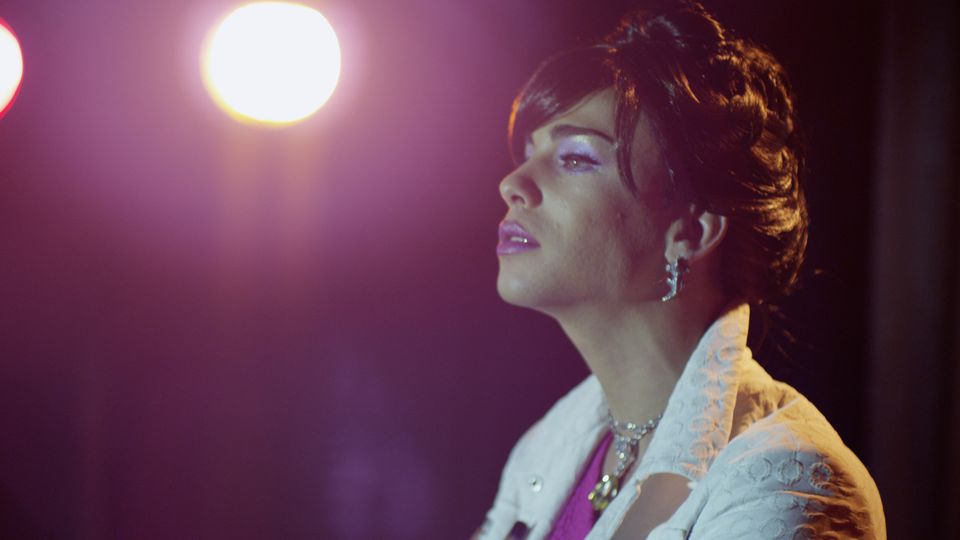MAY 2, 2016
 I would bet that when most people think of Irish movies, they’d either think of leprechauns in the Disney film “Darby O’Gill and the Little People” or more recently, Glen Hansard playing his guitar, busking on the streets of Dublin in “Once.” But you’d never think of a film like “Viva.”
I would bet that when most people think of Irish movies, they’d either think of leprechauns in the Disney film “Darby O’Gill and the Little People” or more recently, Glen Hansard playing his guitar, busking on the streets of Dublin in “Once.” But you’d never think of a film like “Viva.”
A prime contender for the Foreign-Language Film Oscar this year, the Irish-helmed Spanish-language “Viva” is set in Cuba — not in what is becoming the touristy Havana but in its backstreets, following the fortunes of Jesus (Héctor Medina), a young hairdresser who fashions the wigs for a local drag show run by Mama (Luis Alberto García), a lug of a guy who is nonetheless a drag superstar in gay Havana. Mama has become a father figure to Jesus, and when the young man expresses a desire to be up on that stage rather than behind the scenes, Mama encourages him to go for it.
Jesus’ audition doesn’t exactly go smoothly, but nonetheless he makes it, and when pressed as to what his drag persona is named, he looks quickly at a nearby magazine and blurts out the magazine’s name, Viva. Jesus, who has been scraping by supplementing his income as a sex worker, has a shaky debut onstage as Viva, but despite his nerves, the more he performs onstage (and Medina is a very charismatic actor), the more confidently he is able to show his stuff.
Enter Dad. Jesus’ estranged father Angel (Jorge Perugorría), his ex-con father, suddenly shows up and wants Jesus to take him in. Angel, a former boxer who likes his drink, goes through the predictable “You’re no son of mine!” thing when he learns of his son’s line of work (punctuating it with punching Jesus in the face), but Perugorría is too good an actor to leave it at that. Angel is simply a mess, regretting how he has lived his life and wanting, tentatively, to be the father that he never was to Jesus, and Perugorría communicates this subtly as father and son work their way toward a healthy relationship.
If this all sounds a bit by-the-numbers, it sometimes is. But the novelty of the setting — drag life in Havana is very different than the glitz of “RuPaul’s Drag Race” on TV — gives this familiar story a fresh snap. Garcia is very strong as Jesus’ mentor, keeping him stabilized as this turmoil has emerged in his life. But it is the father/son relationship that grows between Perugorría and Medina that is the heart and soul of “Viva.”
What’s remarkable about “Viva” is how home-grown it feels, which is striking since the screenwriter (Mark O’Halloran), cinematographer (Cathal Watters) and director (Paddy Breathnach) are all Irish. But sometimes it takes an outsider’s eye to see a country and its cultures objectively, and all the Irish contributors are top-notch.
If you’re looking for a political film decrying how the LGBT community is treated in Cuba, look elsewhere — “Viva” is not it. But if you’re looking for a moving father/son story, this is the one for you. And when Viva makes her conclusive triumphal appearance on the stage, I would be stunned if a broad smile doesn’t come across your face.
GRADE: B











